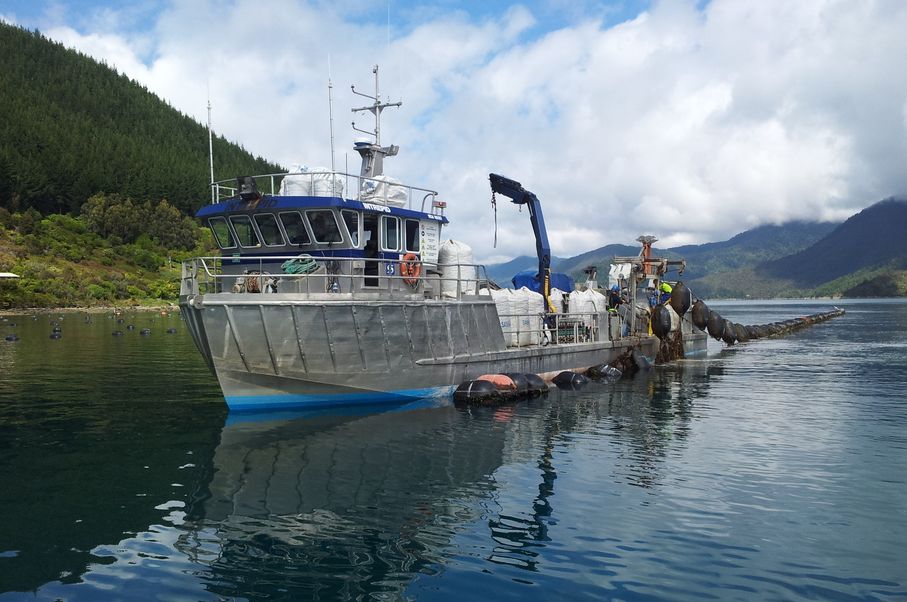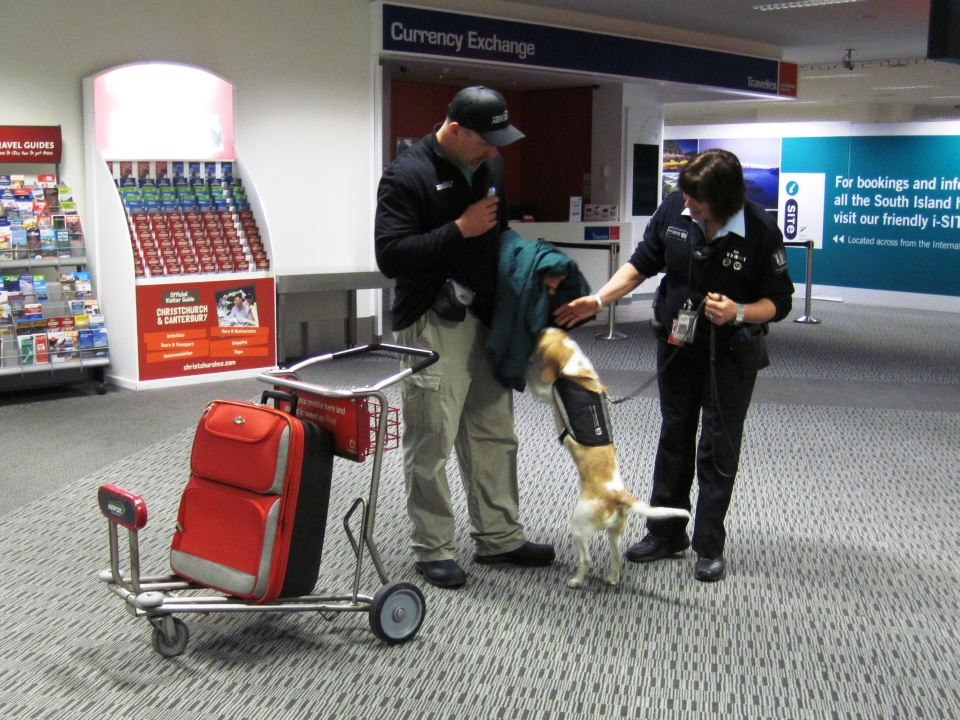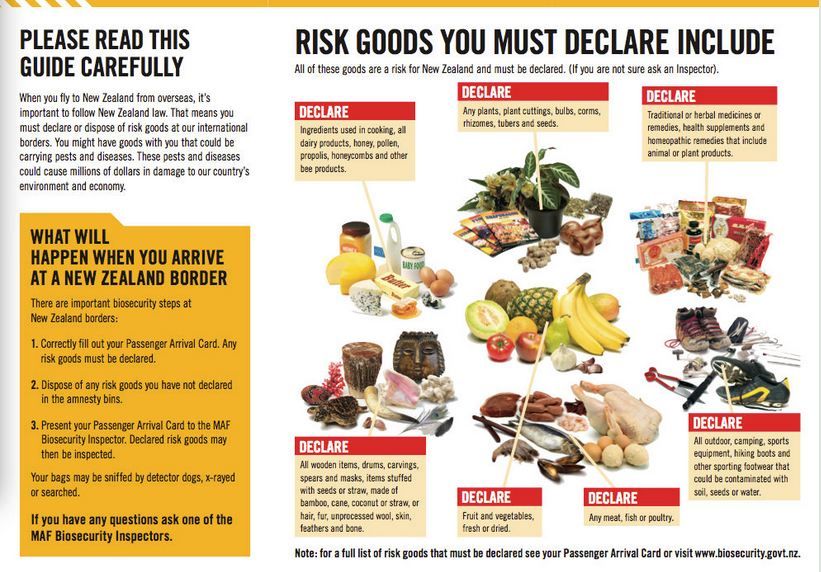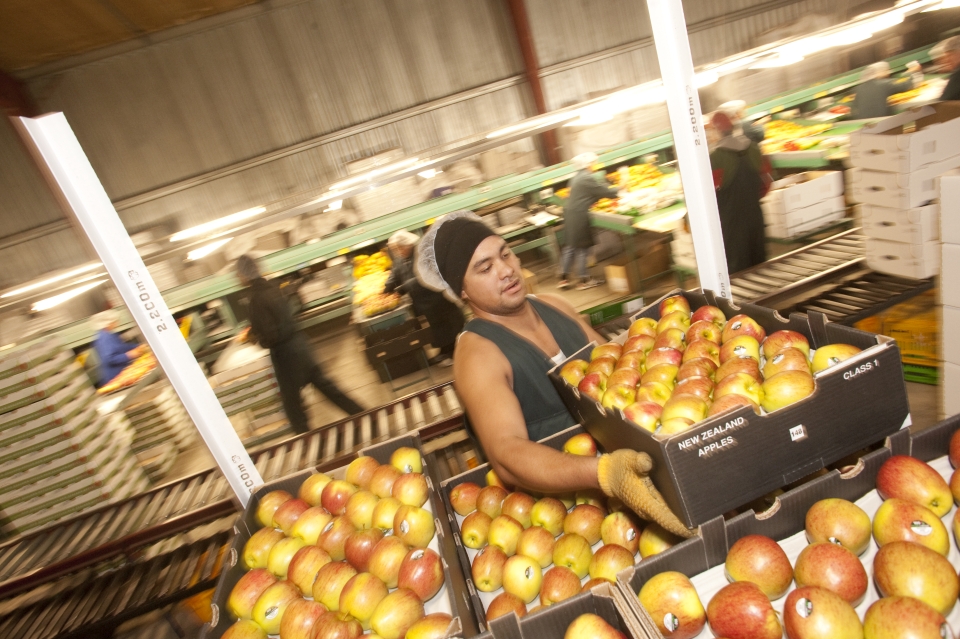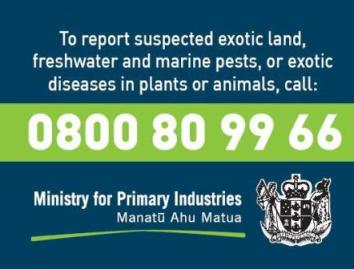New Zealand has many native species that live no where else in the world. When people came to New Zealand they brought plants and animals with them. Some of these now harm our native species. These unwanted plants and animals also affect our primary industries.
Biosecurity helps to stop or reduce any damage caused by introduced plants and animals.
What is biosecurity?
Biosecurity is about keeping New Zealand free of unwanted living things (pests). Biosecurity involves controlling or getting rid of pests if they arrive in the country. Biosecurity includes:
- steps to protect our country from the entry of pests and diseases
- steps to reduce the spread of pests and diseases.
When people bring anything into New Zealand there is a risk of introducing or spreading unwanted pests and diseases. This is why biosecurity is everyone’s responsibility.
Pests and diseases are a risk to:
- The economy – our primary industry exports are worth over 36 billion dollars each year.
- Our environment – New Zealand has many unique plants and animals that could be harmed by pests and diseases.
- Values – pests and diseases could change the way we are able to work and play. For example weeds in waterways could stop people from using our waterways for recreation or for gathering food.
- Human health – pests and diseases can harm our health, for example bird flu.
What makes a pest a ‘pest’?
Plant and animal pests are those brought to New Zealand by people. They threaten our native plants, animals and natural habitats. Plant and animal pests have become the biggest threat to our native plants and animals.
Plant pests (weeds) threaten our native plants by smothering, strangling or crowding them out. Weeds can take over our forests and wetlands. Many are also a problem for farmers, in home gardens and may cause health problems for some people.
You can find out more about some common weeds here.
Animal pests can harm ecosystems, such as forests and wetlands. Some animal pests, such as wild goats and possums, damage plants by eating them. Other animal pests, such as stoats and rats, eat our native birds or their eggs. They also eat native lizards, frogs and insects. Many animal pests can harm land, crops and livestock. For example, goats cause erosion on riverbanks, and possums carry bovine tuberculosis (Tb). Tb is a disease that affects farm animals and threatens our export markets.
Pest fish also affect our waterways.
You can find out more about animal pests here.
Some biosecurity threats in New Zealand include:
- didymo
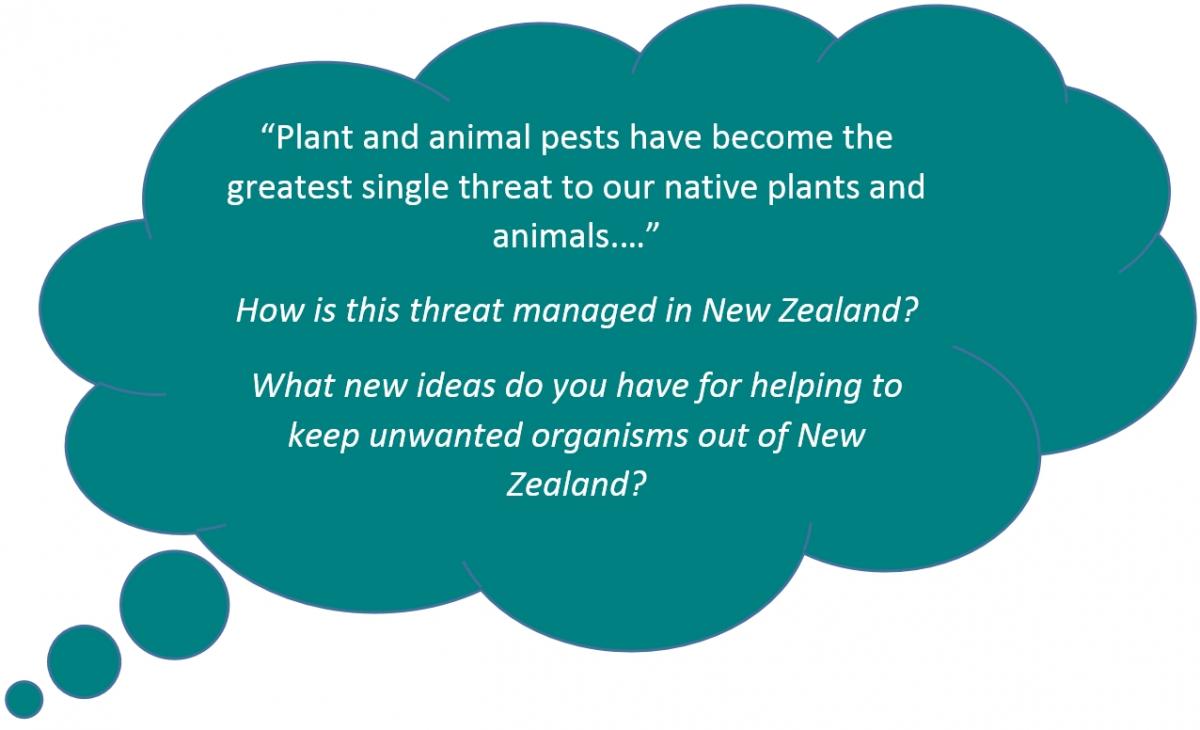
- kauri die back disease
- common and German wasps
- introduced predators such as possums, stoats, ferrets, weasels, wild cats and rats
- myrtle rust - a fungi affects the Myrtle family including pōhutukawa, rātā, kānuka, mānuka and feijoa.
The Ministry for Primary Industries manages biosecurity in New Zealand.
You can help
Keep a watch for anything that could be an unwanted pest or disease.
Report any sightings to the MPI free 24 hour emergency hotline 0800 80 99 66.
Ready for a quiz? Try the "Biosecurity" interactive activity.

